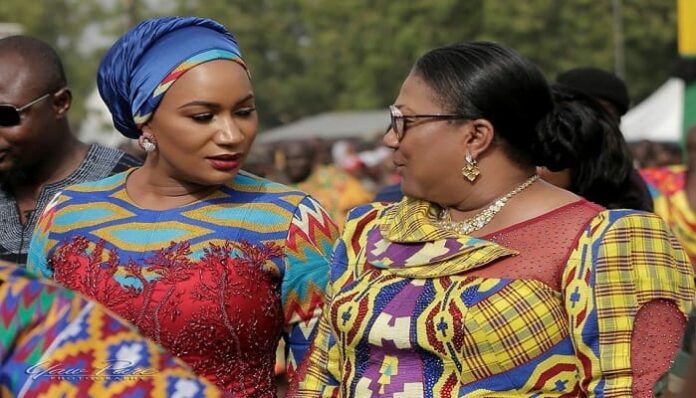
Parliament has approved a recommendation by a five member committee which was set up in June 2019 by President Akufo-Addo, to him and to Parliament on the salaries and allowances First or Second Spouses.
This has infuriated some members of the Ghanaian society who have accused President Akufo-Addo of taking this payment.
Information Minister Kojo Oppong dismissed the concerns saying “The President does approve salaries and benefits for the Executive. Under Article 71, the First Lady and Second Lady are not office holders so no one can determine their benefits under that article.
“However, a committee only recommended that an arrangement for the spouses be made formal and that received approval from Parliament,” he indicated.
Commenting on this development in a tweet, Mr Braimah said “Now that the First Lady and Second Lady are on Cabinet Minister-level salaries, they should be ready for massive public scrutiny. They are now our employees too.”
The Executive Director of the Centre for Democratic Governance, Professor H Kwesi Prempeh has also rejected the approval of payment of allowances of the First and Second ladies.
He stated that the Article 71 Emoluments Committee has no authority to recommend payment of any allowance or emolument to First or Second Spouses, as these are not Article 71 offices or office holders.
In a Facebook post on this development, Professor Prempeh said “The mandate of an Article 71 Emoluments Committee is limited to recommending the salaries and other benefits and privileges of those office holders specified in Article 71, sections (1) and (2). That list of covered office holders is exhaustive. The Article 71 Emoluments Committee has no authority to recommend payment of any allowance or emolument to First or Second Spouses, as these are not Article 71 offices or office holders. And, of course, the Constitution does not require or compel a President or Vice President to have a spouse; bachelors and bachelorettes are welcome. As far as the Constitution is concerned, s3 w’aso awar3 a, you know what to do.
“If Government wants to pay First and/or Second Spouses from the public fisc, it must introduce a Bill to that effect. The clear import of Articles 108 and 178 of the Constitution is that Parliament cannot, on its own accord, initiate or approve payment of any such emoluments (which would necessarily be paid from public funds) without a bill to that effect emanating from and introduced by the Government and duly passed into law.
“The political class cannot use the Article 71 process to smuggle in salaries or allowances for First and Second Spouses.
“If that’s what they want done, they must get the Government to boldly introduce a Bill to that effect, making a case for such emoluments, and thereby allow and ensure public participation in the legislative debate on this matter. This is not something that can be done on the blind side of voters and taxpayers.
“Anyway, why stop at First and Second Spouses? Why not the Third Spouse (since the Speaker gets to act as President sometimes) or the Fourth (so the Chief Justice, too, can enjoy some marital privileges on the back of taxpayers), and on and on and on. And while we are at it, shall we also subject First and “Second Spouses to the asset declaration laws, in their own capacities? What about the sweet “end-of-service” benefits? Indeed, when we place First and Second Spouses on the public payroll, we, essentially, convert their voluntary roles into “public offices” as that term is understood under Article 295. Is that the idea? Do they then become subject to all the laws applicable to public offices and officers?”
By Laud Nartey|3news.com|Ghana
]]>
